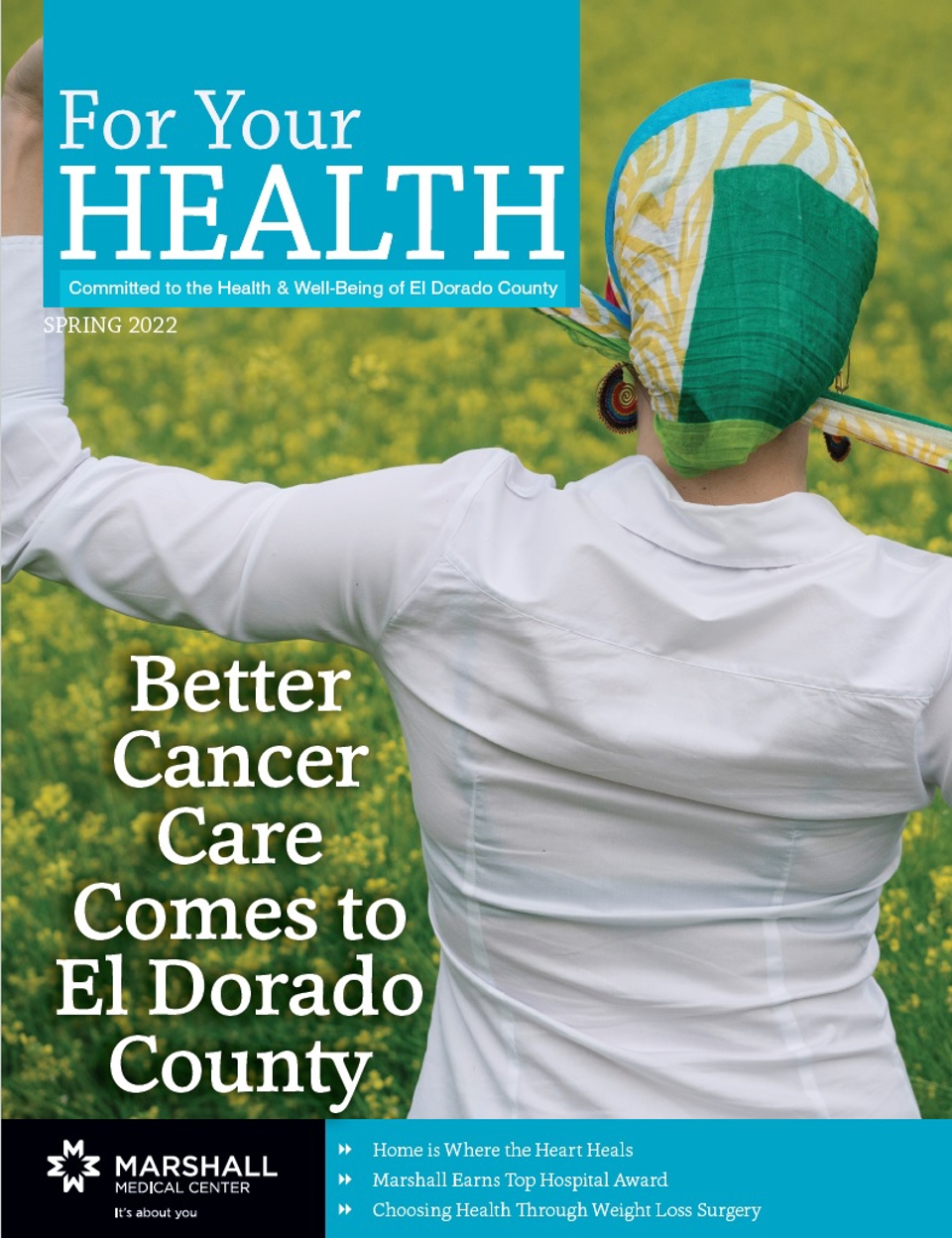March 9, 2017 — Something inside told Janice Curtin, MSW to reach out. The Marshall Hospital social worker had bonded with a pancreatic cancer patient over music and Eastern philosophy. After another round of treatment ended and the ailing woman went home, Curtin recruited the patient’s friends to visit.
“And within a few weeks, she was gone,” Curtin remembered. “I just knew she wasn’t going to last much longer. They told me, ‘because of you, we had that one last chance with our friend. We had no idea.’“
March is Social Workers Awareness Month and Marshall recognizes these caregivers for their compassion and intuition. Curtin is a practicing Buddhist and former river rafting guide. The social work team leads patients and families through a hospital’s most painful waters: substance abuse, domestic violence, terminal illness.
Marshall, El Dorado County’s largest employer, relies on the group to connect patients with local resources like home care and transportation. They educate pregnant women diagnosed with diabetes and help families craft Advance Directives. In a community reliant on their services, they are a local example of an emerging national trend.
El Dorado County places well above state averages in median age (45.7) and percentage of residents age 65 and older (19.32). Of the state’s 34 counties with at least 100,000 residents, only Marin and Shasta have a higher rate of senior citizens, according to the California State Association of Counties.
Curtin represents Marshall’s emphasis on palliative care, the treatment of a serious medical condition’s emotional toll. She’s a member of the hospital’s Advance Illness Management (AIM) team, a collaborative with nearby Snowline Hospice launched in 2012 to direct palliative care to a growing patient base. “We ask questions of everyone involved, patients and families,” she said. “We consult.”
And as the number of Americans 65 and up grows to a projected 82.3 million in 2040, such interactions are becoming more commonplace.
“Palliative care is catching on, and I think we’re on the cutting edge,” Snowline Hospice Executive Director Michael Schmidt said. “We’re local partnership, Snowline and Marshall. We’re also leading the way in terms of the country. Our partnership is thoughtful and strategic.”
Social workers typically confront issues before they turn political or hit the mainstream. While crafting child labor laws in the late 19th century, they also fought pollution and human trafficking. That policy-influencing legacy continues. Ray Martinez, MSW joined the National Association of Social Workers (NASW) as he earned his master’s degree at Sacramento State. He lobbied for several bills at the group’s annual Legislative Lobby Days event. “Political is personal,” he said from his desk at Marshall’s Cancer Center.
“We want to protect vulnerable populations because it’s easy to forget them,” said Marshall Hospital social worker Kellie Curnutt, MSW, a 15-year Air Force Reserve veteran born and raised in nearby Roseville. “It’s a challenging time.”
Martinez’s desk in Cameron Park features a gift from a cancer patient: a painting on a canvas of rock from the American River. The stresses continue, but the structure this team offers can go further.
Marshall is an independent, nonprofit community healthcare provider located in the heart of the Sierra Foothills. Marshall includes Marshall Hospital, a fully accredited acute care facility with 125 beds in Placerville; several outpatient facilities in Cameron Park, El Dorado Hills and Georgetown; and many community health and education programs. Marshall has more than 200 physicians and 1,500 employees providing quality healthcare services to more than 180,000 residents of El Dorado County.





